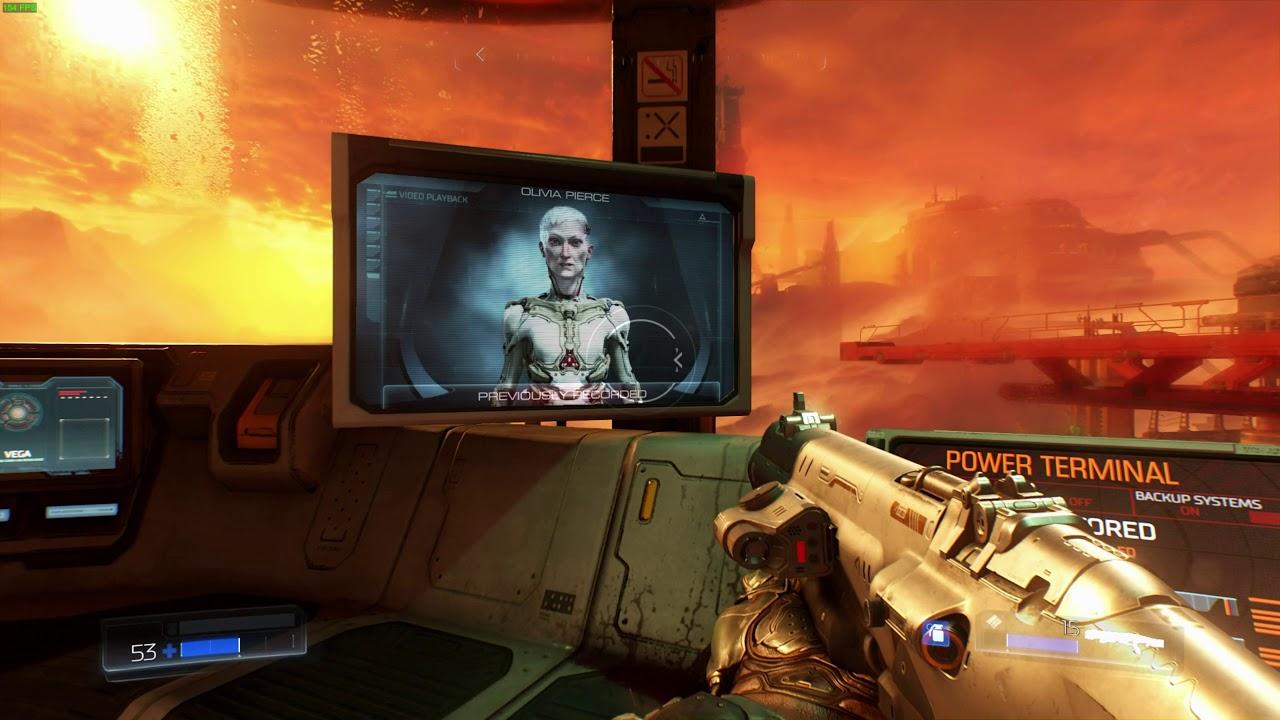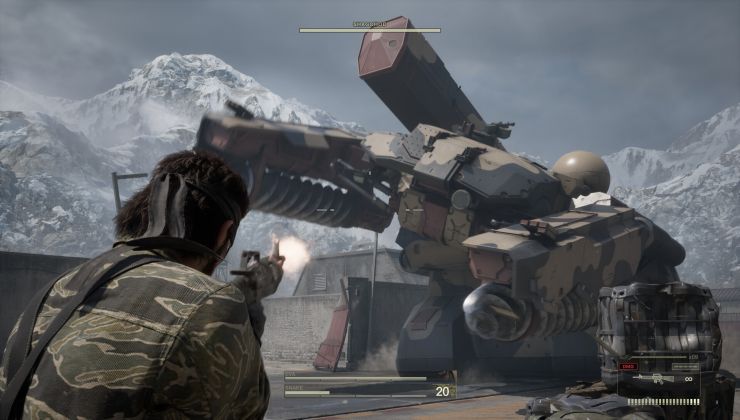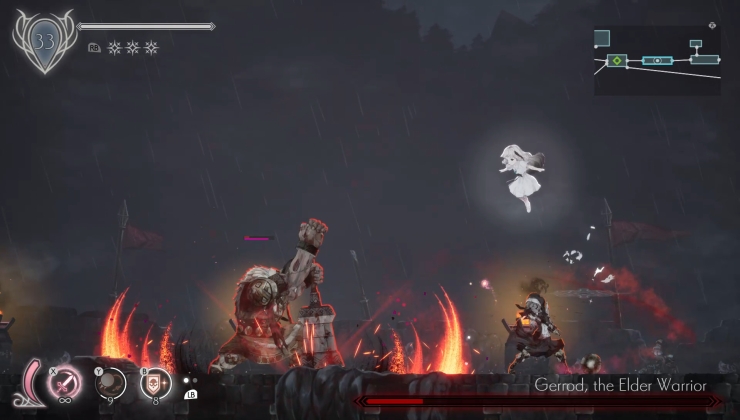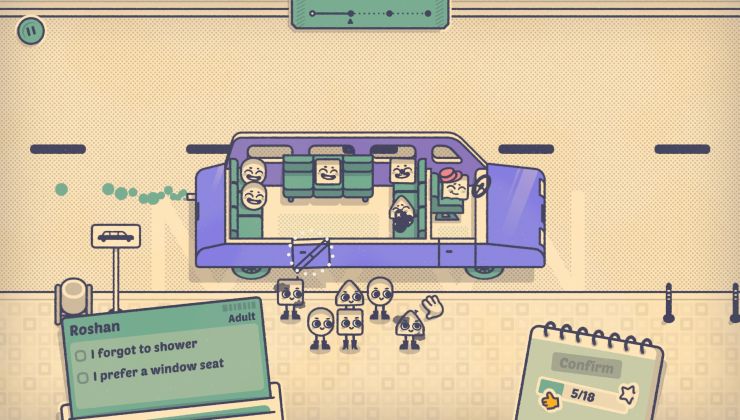With the dust settling on the absolute bomb that Valve dropped with the new Steam Play feature, I’ve had a little time now to think about the broader implications. It’s obviously a lot to process and these are just my own personal thoughts.
In the short time Proton has been live, the Linux gaming community has come together in a way that I've not seen in all the years I've been doing this. Looking at the GitHub page for Proton, there's already masses of people submitting issues, mentioning games that work perfectly to add to Valve's whitelist of games, people submitting code to help the project along and so on. There's also a massive document on Google Docs, with people submitting their findings on how games run. Seems like it's off to a rather good start!

Direct Link
One of the major worries I had initially, which I’ve seen others share, is that this could mean the end of native Linux ports. However, I have a different take on it.
When it comes to the long-term viability of Linux gaming, getting 2 or 3 AAA games natively ported a year is simply not sustainable. While I am absolutely appreciative of the effort and a big fan of the porting studios, we needed something else to complement native ports to help push us forward.
To be clear on something, I’m absolutely all for the famous “No Tux, No Bucks” slogan people like to throw around. It’s a brilliant thing that there’s a lot of enthusiastic people out there sticking to their guns, buying only games that support Linux. A small reality check though: for the vast majority of developers you’re basically pissing into the wind due to our market share. Developers aren’t likely to see enough sales to think it’s truly worth the effort.
Thinking that this will completely kill off ports from Aspyr Media, Feral Interactive and other porters is probably thinking too short-term. In my mind, this could actually help them quite a lot when thinking about the bigger picture.
With this Steam Play move, this could be a massive push for more people to actually play their games on Linux, get more people actually install Linux and so on. This could, at least in theory, give native porting houses a much bigger market to sink their teeth into. After all, the biggest problem we face is market share, what happens if this starts to move it upwards? Like with SteamOS though, let’s keep expectations in check—I don’t expect this to instantly move mountains. However, this seems like a long-term plan that’s thinking ahead and if it does result in more people using Linux for gaming, that will benefit the entire platform—not just gamers.
Think about it: what’s the single biggest issue people have when it comes to sticking with Linux for their gaming requirements? The actual games, duh. If this bridges a gap for all the people that claim “if x game worked on Linux, I would be on Linux” this probably will become a game changer. Especially important, is the fact that this doesn’t require time and effort to configure, like any other Steam game (for the whitelisted games at least) it will be click and play. The value of that, should not be underestimated. To give an example of that, see the below video:

Direct Link
It’s especially important for all those games people have on Steam that they would otherwise lose access to when moving to Linux. People shouldn’t have to lose their favourite games! Even if it’s only used as a bridge while people move towards purchasing native titles, it’s still an extremely useful feature.
Valve told us directly, that purchases of Windows games played with Proton on Linux will count as a Linux sale. If you missed the update to the previous article, they said this:
Hey Liam, the normal algorithm is in effect, so if at the end of the two weeks you have more playtime on Linux, it'll be a Linux sale. Proton counts as Linux.
So, with any luck, all the people who were already buying Windows games for Wine (and any users coming over to Linux from Windows) will start doing so from within Steam directly. Now if you pick it up to play in Steam Play and a native Linux port comes later (for those times when a release is delayed) you’ve still been counted for Linux gaming—which is truly awesome!
This may help give Linux gaming a more positive outlook in the eyes of developers looking at their sales statistics. That’s quite a big point to reflect on. This might give developers who otherwise ignored Linux some incentive and a push to actually support the platform. If they suddenly start seeing a ton of people buying on Linux, it might start some interesting conversations about actually supporting it officially. Those types of conversations end up creating waves through the entire industry, I've already seen a lot of developers quite excited and hopeful about it all, so it's already making a positive impact on some.
There’s other points to think about too. Linux GPU Drivers and the Vulkan API will be given a much larger testing pool. I imagine this benefiting them greatly. Valve said it themselves in their announcement, that they recommend that developers target Vulkan (as well as telling developers to avoid invasive third-party DRM middleware), so this could be a good way to push Vulkan which is better for all of us since it’s an open API.
However, Valve’s Proton can only do so much for performance and getting a game to work in the first place. What about bugs in the game itself they literally cannot code around to get it working on Linux? What about the masses of online-only games, that have various forms of anti-cheat that Proton/Wine simply cannot handle?
There’s a large number of games that only half work or simply don’t work at all. What about when your favourite game gets an update, which breaks it with Proton? There’s likely many cases that I’m probably not even thinking of, where Valve’s solution simply wouldn’t work or would give a subpar experience.
This is where native ports will still be king. You know what you’re buying will work on Linux and it will give you official support from the developer. When it gets updated, you know it’s still going to work because that’s literally their job to ensure it does. That’s likely the major reason why native ports won’t, or rather shouldn’t, dry up. Valve have to attempt to support a massive, ever-increasing library of Windows-only games and so their resources are going to be spread pretty thin on this. Not to mention that there’s always a chance that Valve could decide to pull back on support in a year or two if they decide it’s not working well enough.
Compare that with a developer putting out a Linux version; obviously they have a much smaller (and likely easier) bit of code to focus on. I would still expect the experience to be superior with a native port, since it’s tweaked specifically for Linux and it’s likely gone through some proper QA. When it comes to games that do require anti-cheat that doesn't (and might never) work with Proton, this could end up being a rather lucrative selection of games for game porters.
Like what happens when any new tech comes out, porting companies will need to adapt to survive. I hope they do, I want them to. The more options we have, the better it is for everyone.
I mentioned drivers briefly earlier. Well, how many times do you think driver issues have held up a Linux port? From what I know, quite often. If we do indeed get better drivers as a result of this, it might also create fewer issues for developers when it comes to doing native ports. We know that some driver developers have been specifically fixing issues with games in Wine, so it sounds like it's been someting ongoing for some time now.
I did speak to Feral Interactive, who told me “Our plans for our future Linux projects haven't changed.”. So we should be able to look forward to continued native Linux ports, including their currently announced Linux ports for Life is Strange: Before the Storm and Total War: WARHAMMER II. I also reached out to Aspyr Media, who declined to give a public comment for us at this time and Virtual Programming did not reply at all.
It remains to be seen what truly happens, but this is probably one of the biggest things to ever happen to Linux gaming. It’s a very interesting time to be both a Linux gamer as well as someone who writes about Linux gaming news.
At the very least, it’s put Linux gaming back on the map for a lot of people. I’ve lost count many times over at the amount of people sending us messages across our various social networks, telling us how excited they are about the possibilities of this.
These are just my own thoughts, I invite any game developer, game engine developer or game porter to write their own post to talk about it. Our submissions are always open and I appreciate having different viewpoints.
Also, as a final note, I find it somewhat amusing that John Carmack said this back in 2013:
Improving Wine for Linux gaming seems like a better plan than lobbying individual game developers for native ports. Why the hate?
To pinch a popular meme—it’s as if Valve said “hold my beer”.
It will mature. They just need to solve some "minor" annoyances, like DRM...
Instead, Valve kept Steam on Linux without an easy play-Windows-games-on-Linux mode for 5–6 years, during that time they’ve released SteamOS which did not provide any easy way to install non-native games (one had to manually install Wine and separate Windows version of Steam for that), and that forced quite a few developers who did not want to be left out of Valve’s new platform to actually start properly supporting Linux. It also made Feral and Aspyr focus on porting to Linux.
And only now, after releasing native Linux version became a pretty standard practice (at least for some game publishers) and stopped being a weird exotic exception to overwhelming number of Windows-only releases, only after over 3 thousand games on Steam have native versions, they release built-in Proton that allows one to install and play the remaining Win-only games.
Valve already brought some publishers to Linux, in doing so proved that porting to Linux is technically feasible, that games do work on Linux, and that distros diversity isn’t really a problem.
Only now, when porting to Linux is an established practice, thanks to this feature – which seemed obvious to me already around 2013–2014 that it’d be needed to convince more people to use Linux / Steam Machines – Valve, I believe, will actually bring new players to Linux. How many will be convinced, though, remains to be seen. But I think the future is bright.
I've been to gamescom this week and could talk to some developers in person. I'm surprised so many of them are meanwhile aware of Linux gamers and especially surprised how many of the devs are Linux users themselves. Nevertheless, when it comes to Linux as a supported platform, it's becoming more vague, they don't say no, but also no promises. Some are afraid of the amount of incoming support requests, they almost can't handle the ones coming from mac users.
They said though, without me telling them anything, they know some gamers managed to play their games with wine on Linux. That was the moment when I dropped a word about Valve's fork proton. They didn't hear about that yet, as it was just released and they are busy on gamescom, but they are happy to hear about proton. So they could reach more gamers, which they want of course.
I agree, that if the Steam hardware survey now rises to a critical point, we'll see devs and publishers prefer creating native versions, which could be done inhouse or by porting studios and devs.
As Valve is also submitting their work upstream to wine, and everything is open source, we'll be able to play also more non-steam games. Valve just showed running World of Warcraft with DX12 over Vulkan. Here you go Blizzard.
I'm exited to see how this turns out in the long run. It can only get better for Linux gaming, native or protonized.
Last edited by Corben on 24 Aug 2018 at 10:30 am UTC
But my limit for buying games which don't run natively on Linux is max 5€ per game. I might change it to 10€ for Valve's effort with Steam play. But this is as far as I go for non native games. Hopefully there will be way to tell if it is natively or not.
Also, as a final note, I find it somewhat amusing that John Carmack said this back in 2013:You might want to link [that](https://www.reddit.com/r/linux/comments/17x0sh/john_carmack_asks_why_wine_isnt_good_enough/c89sfto/) too, where he elaborates a bit on reddit.
I agree with what you said, but I feel like nothing new can be said here compared to the other gigantic thread :D
Valve already brought some publishers to Linux, in doing so proved that porting to Linux is technically feasible, that games do work on Linux, and that distros diversity isn’t really a problem.
Only now, when porting to Linux is an established practice, thanks to this feature – which seemed obvious to me already around 2013–2014 that it’d be needed to convince more people to use Linux / Steam Machines – Valve, I believe, will actually bring new players to Linux. How many will be convinced, though, remains to be seen. But I think the future is bright.
Let's not forget that progress on the driver front has been tremendous since then -- in part thanks to Valve's efforts.
Last edited by MayeulC on 24 Aug 2018 at 10:32 am UTC
Steam Play will make life easier for Linux players: less frustrating, you can play a game even if it is not available on your platform, and more important: one click to play! A lot of people don't want to lose time for tweaking, they just want to play game. Only a commercial enterprise could give you such a comfortable service on Linux.
When I read that "Linux native" is better, I'm not so sure about that. How many native games does not work anymore on Linux and you finally use the Windows port with Wine, because library symbol changed or doesn't exist anymore? I have several Linux native games the Windows version works better with Wine.
For the Wine sceptical, don't forget where Wine came from, this software borned on Linux and is 100% free code. It is now even used on Windows to launch old directx games that are no more compatible with recent Windows version. It is even ported on MacOSX and Android. We can be proud to use a platform that beget such a powerful software. And now, with Valve, Wine will become even more powerful and become a serious solution for game developers that have no time, skills or money to develop a Linux port. So games that should not come to our platform initially could be available and played by Linux gamers. Games devs could eventually plan to develop games compatible with Steamplay...It's not as ideal as native ports, I agree, but it's expanding the possibilities and that's what we need, expanding possibilities = more games available.
And who are the winners at the end? the Linux gamers.
Last edited by legluondunet on 24 Aug 2018 at 1:21 pm UTC
So, with any luck, all the people who were already buying Windows games for Wine (and any users coming over to Linux from Windows) will start doing so from within Steam directly. Now if you pick it up to play in Steam Play and a native Linux port comes later (for those times when a release is delayed) you’ve still been counted for Linux gaming—which is truly awesome!
Except when the Linux version is published by a different company
And now they have done exactly that.
And now it's just install and see. And for stuff that doesn't work, it's probably still better to give it a go manually or use Lutris to install it. If one can find the time to do that.
As compatibility grows, I may actually use it for a couple of things. For instance, the other Bioshock games came with my copy of Bioshock Infinite, which I'm curious to try at some point.
It'll be interesting to see where it goes.
32.8% completely stable
23.8% stable
5.2% unstable
23.6% crashes
8.3% unplayable
6.4% won't start
i made an chart my self from wineHq a few years ago (platinum, gold, silver, bronze, garbage), it would be interesting to see how things has changed, but i cant find the chart.
in any case, this is different since this is click and play, they have better funding now and this list is recent (dont include games that stoped working in the past and no one tested it again since then)
Never thought I'd play that in Linux, I never had luck with vanilla WINE.
But still, I've something quite clear: I'll always use and prefer official Linux supported games over any option that proton can give me. This means: I'll always buy any game at full price (and also on the devs page -- Feral!) if they have official support in our platform (I don't care how) and also I will still buy games than that aren't of my type but that I appreciate the devs work (this ones sometimes not a full price purchase, but they still have priority for me). So, in my case, proton is only a way to play old games that doesn't have support in our platform or maybe a new game that I know that won't have a Linux version. Of course, the latter will be purchased with the BEST offer possible (I'm watching you DOOM 2016!) and definitely whenever I deplete my wishlist of Linux games (long story short: probably by 2020 I'll start buying windows games...)
To summarize, I think that it is very important that we, as community, keep playing natives games over proton when available. First off, remember that devs are very used to work on Windows environment, so making them work on a Linux environment (or even MacOS) is a necessary practice for the future of our gaming platform (as developer I know that the practice is key factor), and reporting bugs and problems with natives games is what will help them in their learning process. And finally, we should also think that playing native will also improve many other Linux subsystem out of the GPU drivers as games does many others things besides of just rendering an scenario.
Those were my two cents...
1) Those who care about Linux users. They will anyway prefer a native port, as the stability, performance etc. will always be better than running through Wine.
2) Those who don't care about Linux users. They would most likely not have made a native port anyway. So with Steam Play/Proton we get at least a chance to be able to run it on Linux, where it would not have been on Linux at all otherwise.
Basically, any additional way of running games smoothly on Linux is appreciated and will help the platform in the long term.
according to what was tested and registered on the google docs:
32.8% completely stable
23.8% stable
5.2% unstable
23.6% crashes
8.3% unplayable
6.4% won't start
i made an chart my self from wineHq a few years ago (platinum, gold, silver, bronze, garbage), it would be interesting to see how things has changed, but i cant find the chart.
in any case, this is different since this is click and play, they have better funding now and this list is recent (dont include games that stoped working in the past and no one tested it again since then)
Problem with the Google Doc is, a lot of test results are useless.
Many failing test results are missing the requirements: https://github.com/ValveSoftware/Proton/blob/proton_3.7/PREREQS.md
People should read them before adding their results because it's waste of time.
Problem with the Google Doc is, a lot of test results are useless.
Many failing test results are missing the requirements: https://github.com/ValveSoftware/Proton/blob/proton_3.7/PREREQS.md
People should read them before adding their results because it's waste of time.
Exactly the same I thought yesterday reading this doc.
Also what I've observed is that the most games run ether well on nvidia or mesa but mostly not on both - interesting.
BUT, why are people so hung up on whether or not there is a native version? When a game has been working well under Wine, it's never bothered me that it isn't native. Why should it? The game runs and I can't tell the difference. So long as the games are running well, then whether or not it's "native" is just an intellectual point that's no longer practical. Though running well is obviously a key point there - if it runs like junk, then have at it.
The way I see it, eventually developers will just see Steam Play as kind of like another variant of Windows to test for, and won't really care whether it's Windows or Linux, so long as it runs.
I still can't make the leap from "more users and developers on Linux" to "more native titles for Linux". Sure, there may be more gamers, so it's good for them. And there may be more developers selling games, so good for them too. But just because a Windows port (in Wine) now works better in Linux, I don't see that necessarily translating into more native titles.
The more compatible and transparent that Steam makes this, the less likely that developers have to care about it. That's good from their POV, I guess. It means more gamers on Linux, and more developers hearing about Linux and wanting to make sure their game works with Proton. But I still can't make the leap as to why that would lead to more native titles. IMO, the better the performance and ease-of-use of Proton, the less incentive for native titles. So we will always be a second-class citizen. Nothing I've heard so far can dispute this; it all seems like wishful thinking.
Granted, we don't exactly have a large collection of native ports, and growing it may be difficult. But at least we're trying. This new approach, while good for gamers in terms of quantity, is likely to kill any remaining native porters, and provide essentially no reason for new porting houses to come along. It looks like eventually it will be the end of the line for Feral, etc.
I don't agree with the last part. The new steam feature should not change our behaviour, in the sense that we should keep asking for a linux release and we will buy them. Also, unless more new AAA games start to be released drm free and with native vulkan support, there is a slim chance that Feral operation could be affected.
As I said, my loyalty is with natives, so those are the games I'll buy at full price. If there are enough Linux users like me (and still should exist the same number as last week... Doubt that proton could change a mindset), Feral and VP shouldn't be affected at all.
It's a win for Steam for sure. If you are buying at other platforms this has zero benefit.
It could mean fewer games will be ported, which is going to make our situation is getting worse.
I hope that at least Steam is going to put some resources into the WINE project.












 How to set, change and reset your SteamOS / Steam Deck desktop sudo password
How to set, change and reset your SteamOS / Steam Deck desktop sudo password How to set up Decky Loader on Steam Deck / SteamOS for easy plugins
How to set up Decky Loader on Steam Deck / SteamOS for easy plugins
See more from me